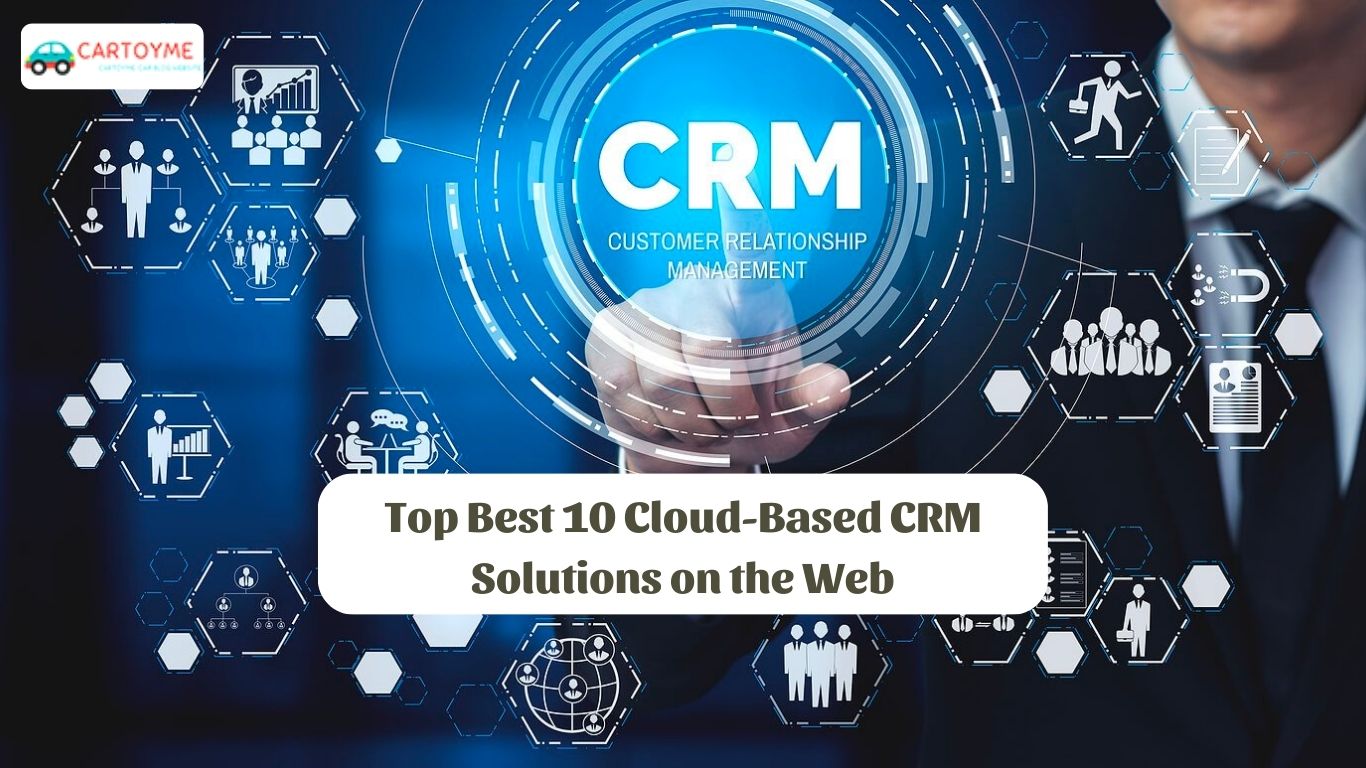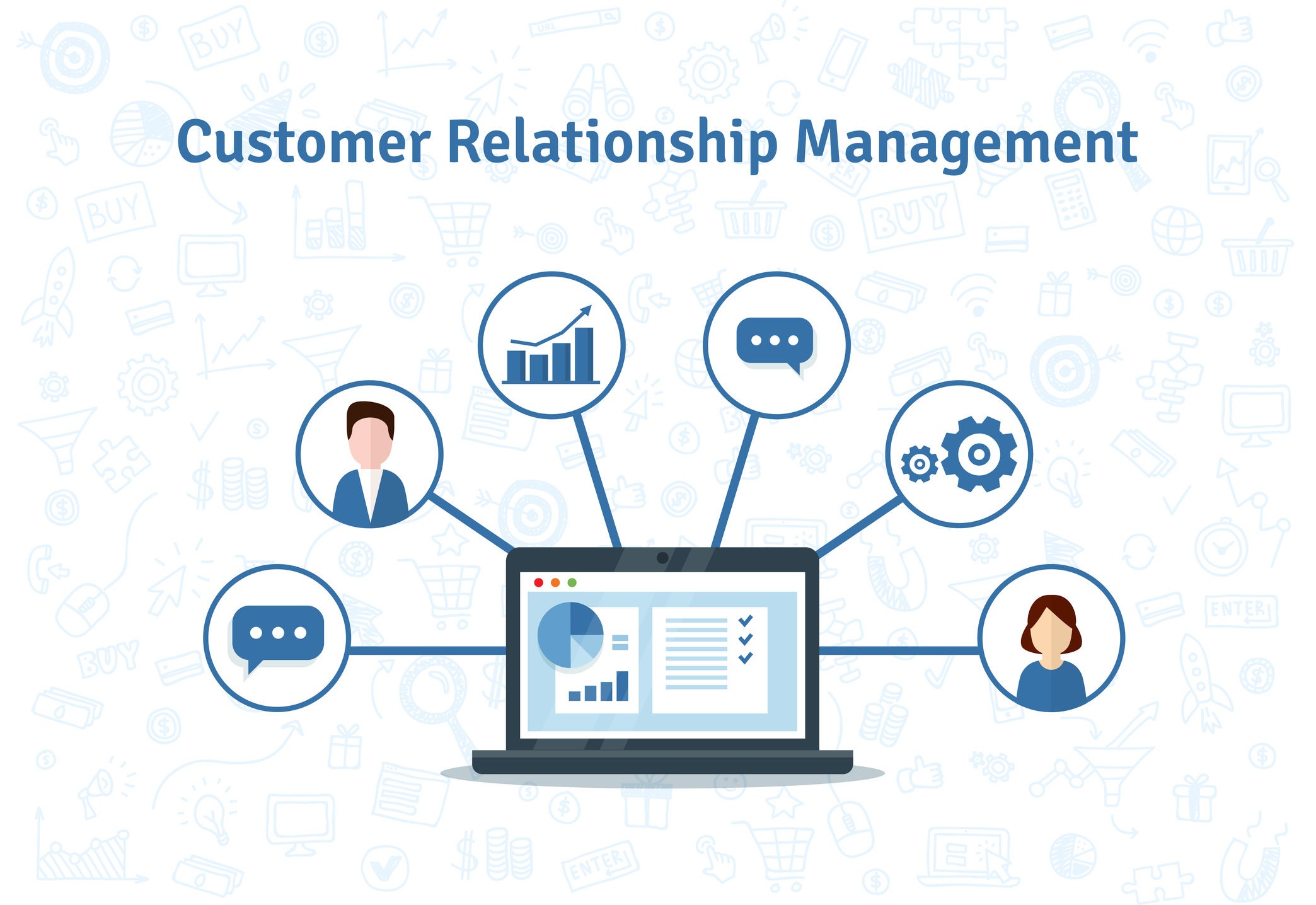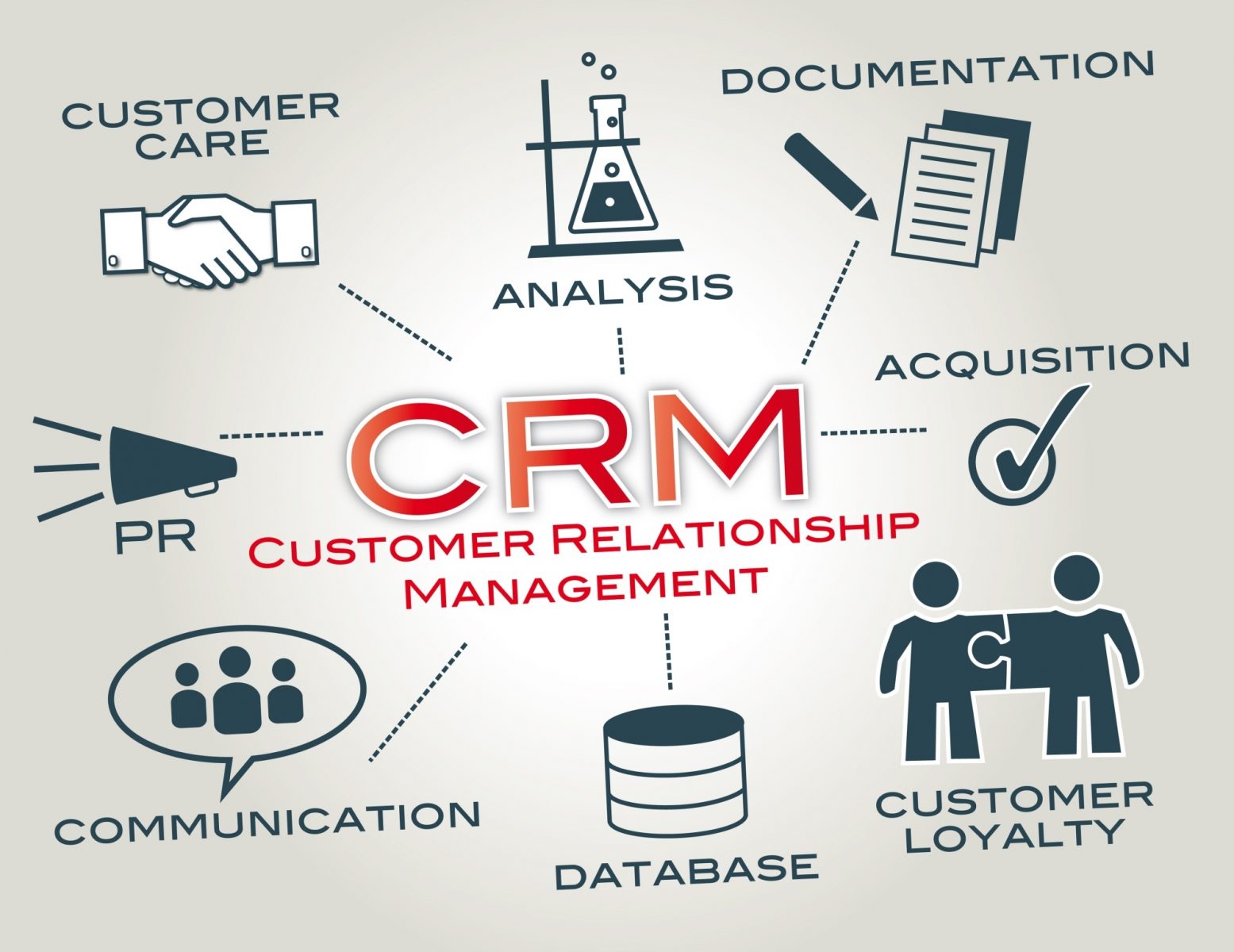Empowering customer experiences with cloud CRM: The growing significance of cloud-based CRM systems
In today’s digital landscape, businesses are increasingly relying on cloud-based Customer Relationship Management (CRM) systems to manage customer relationships, streamline operations, and enhance customer experiences. These innovative tools empower organizations to efficiently store, access, and analyze customer data, leading to improved communication, personalized interactions, and increased customer satisfaction.
The importance of empowering customer experiences with cloud CRM cannot be overstated. As competition intensifies, businesses must leverage advanced technologies to differentiate themselves and foster long-lasting relationships with their customers. By adopting cloud CRM systems, companies can effectively manage customer interactions, automate sales processes, and gain valuable insights from customer data, all while providing seamless and engaging experiences.

Key Features of Cloud CRM Solutions: Empowering customer experiences with advanced tools
Cloud CRM systems offer a wide range of features designed to help businesses manage customer relationships, streamline operations, and enhance customer experiences. Among these essential features are contact management, sales automation, analytics, and mobility.
Contact Management
Contact management is a core feature of cloud CRM systems, enabling businesses to efficiently store, organize, and access customer information. By centralizing customer data, businesses can ensure that all relevant stakeholders have access to up-to-date and accurate information, facilitating personalized interactions and fostering strong customer relationships.
Sales Automation
Sales automation is another critical feature of cloud CRM systems, streamlining sales processes and improving efficiency. By automating tasks such as lead generation, opportunity tracking, and sales forecasting, businesses can reduce manual work, minimize errors, and enable sales teams to focus on closing deals and building customer relationships.
Analytics
Cloud CRM systems offer advanced analytics capabilities, allowing businesses to gain valuable insights from customer data. By analyzing customer behavior, preferences, and trends, businesses can make informed decisions, tailor marketing strategies, and improve customer experiences.
Mobility
Mobility is a key advantage of cloud CRM systems, enabling users to access customer data and perform tasks from any location, using any device. This feature empowers businesses to provide seamless customer experiences, even when team members are on the go, and ensures that customer-facing employees have the information they need to engage with customers effectively.
By leveraging these key features, businesses can empower customer experiences with cloud CRM, driving growth, improving customer satisfaction, and maintaining a competitive edge in today’s digital landscape.

Selecting the Right Cloud CRM Solution: Empowering customer experiences with tailored technology
Selecting the ideal cloud CRM platform is crucial for businesses aiming to manage customer relationships, streamline operations, and enhance customer experiences effectively. When evaluating potential cloud CRM solutions, consider factors such as scalability, integration capabilities, customization options, and user-friendliness.
Scalability
Scalability is an essential factor when choosing a cloud CRM solution. As businesses grow, their CRM systems should be able to accommodate increasing data volumes, user counts, and functional requirements. Selecting a scalable cloud CRM platform ensures that businesses can adapt to changing needs without facing limitations or performance issues.
Integration Capabilities
Integration capabilities are another critical consideration when selecting a cloud CRM solution. A CRM system that seamlessly integrates with other business applications, such as marketing automation tools, email clients, and accounting software, can help streamline workflows, reduce manual data entry, and ensure data consistency across platforms.
Customization Options
Customization options are vital for businesses seeking to create unique customer experiences with cloud CRM. A flexible CRM platform allows businesses to tailor features, workflows, and user interfaces to their specific needs, ensuring a better fit with existing processes and enhancing user adoption.
User-Friendliness
User-friendliness is a key aspect of any cloud CRM solution. An intuitive and easy-to-use platform can help ensure a smooth user experience, reduce training time, and increase user adoption. When evaluating potential CRM systems, consider factors such as interface design, navigation, and the availability of user guides and support resources.
By carefully considering these factors, businesses can select a cloud CRM solution that empowers customer experiences, drives growth, and maintains a competitive edge in today’s digital landscape.

Implementing a Cloud CRM System: Best practices for a seamless transition and positive user experience
Implementing a cloud CRM system is a critical step in empowering customer experiences and streamlining business operations. To ensure a successful transition, consider best practices such as data migration, user training, and ongoing support.
Data Migration
Data migration is a crucial aspect of implementing a cloud CRM system. Accurately transferring customer data from existing systems to the new CRM platform ensures continuity and minimizes disruptions. Develop a comprehensive data migration plan, including data validation, cleaning, and mapping, to ensure a smooth transition.
User Training
User training is essential for ensuring a positive user experience and maximizing the benefits of a cloud CRM system. Provide comprehensive training resources, such as user guides, video tutorials, and live training sessions, to help users understand the platform’s features and capabilities. Encourage users to ask questions and provide feedback to address any concerns or challenges.
Ongoing Support
Ongoing support is vital for maintaining a positive user experience and ensuring the long-term success of a cloud CRM implementation. Establish a support structure, including a dedicated support team, help desk resources, and regular system updates, to address user issues, provide assistance, and keep the system up-to-date with the latest features and improvements.
By following these best practices, businesses can ensure a seamless transition to a cloud CRM system, empower customer experiences, and maintain a competitive edge in today’s digital landscape.

How to Empower Customer Experiences with Cloud CRM: Practical tips and strategies
Cloud CRM systems offer a range of features and capabilities that can help businesses empower customer experiences. By implementing the right strategies, businesses can leverage these tools to build stronger relationships, streamline operations, and enhance customer satisfaction.
Personalize Customer Interactions
Personalization is key to creating positive customer experiences. Cloud CRM systems provide businesses with the tools to segment their customer base, track customer interactions, and tailor communications to individual customer needs. By leveraging this data, businesses can create personalized experiences that build customer loyalty and drive growth.
Provide Self-Service Options
Self-service options are increasingly important in today’s digital landscape. Cloud CRM systems can help businesses provide self-service options, such as online account management, chatbots, and FAQs, that empower customers to find the information they need quickly and easily. By providing these options, businesses can reduce customer service costs, improve customer satisfaction, and build stronger relationships.
Utilize Real-Time Data for Informed Decision-Making
Real-time data is a powerful tool for informed decision-making. Cloud CRM systems provide businesses with real-time insights into customer behavior, preferences, and needs. By leveraging this data, businesses can make informed decisions, optimize their sales and marketing strategies, and create more personalized customer experiences.
By implementing these strategies, businesses can empower customer experiences with cloud CRM and maintain a competitive edge in today’s digital landscape.

Real-Life Success Stories: Empowering Customer Experiences with Cloud CRM
Cloud CRM systems have helped businesses across industries to empower customer experiences and drive growth. In this section, we will share success stories of businesses that have effectively utilized cloud CRM to achieve their goals.
Case Study 1: Personalized Customer Interactions
A mid-sized e-commerce business was struggling to provide personalized customer experiences. By implementing a cloud CRM system, they were able to segment their customer base, track customer interactions, and tailor communications to individual customer needs. As a result, they saw a 20% increase in customer satisfaction and a 15% increase in sales.
Case Study 2: Self-Service Options
A large financial services company was facing high customer service costs and low customer satisfaction. By providing self-service options, such as online account management and chatbots, they were able to reduce customer service costs by 30% and improve customer satisfaction by 25%.
Case Study 3: Real-Time Data for Informed Decision-Making
A retail business was struggling to optimize their sales and marketing strategies. By leveraging real-time data from their cloud CRM system, they were able to make informed decisions, tailor their marketing campaigns, and increase sales by 10%.
These success stories demonstrate the power of cloud CRM in empowering customer experiences. By implementing the right strategies, businesses can leverage these tools to build stronger relationships, streamline operations, and drive growth.

Future Trends in Cloud CRM and Customer Experience
As technology continues to evolve, cloud CRM systems are also advancing, offering new opportunities for businesses to empower customer experiences. In this section, we will discuss emerging trends in cloud CRM and their potential impact on customer experiences.
Artificial Intelligence (AI)
AI is revolutionizing the way businesses interact with customers. By leveraging AI in cloud CRM systems, businesses can automate routine tasks, provide personalized recommendations, and predict customer behavior. This can lead to improved customer satisfaction, increased sales, and reduced costs.
Machine Learning (ML)
ML is another emerging trend in cloud CRM. By using ML algorithms, businesses can analyze large amounts of data, identify patterns, and make data-driven decisions. This can lead to improved customer segmentation, targeted marketing campaigns, and increased customer loyalty.
Internet of Things (IoT)
IoT is also playing a role in the evolution of cloud CRM. By connecting IoT devices to cloud CRM systems, businesses can gather real-time data, monitor customer behavior, and provide personalized experiences. This can lead to improved customer satisfaction, increased sales, and reduced churn.
These trends demonstrate the potential of cloud CRM to empower customer experiences. By staying up-to-date with the latest developments and adapting their strategies accordingly, businesses can maintain a competitive edge and drive growth.

Maximizing the Benefits of Cloud CRM
Throughout this article, we have explored the power of cloud CRM in modern business and the various ways it can be used to empower customer experiences. By selecting the right cloud CRM solution, implementing it effectively, and leveraging its key features, businesses can streamline operations, improve customer relationships, and drive growth.
To maximize the benefits of cloud CRM, it is essential for businesses to stay up-to-date with the latest developments and adapt their strategies accordingly. This includes continuously improving processes, incorporating new technologies, and providing ongoing training for employees.
Continuous Improvement
By regularly reviewing and analyzing data from their cloud CRM system, businesses can identify areas for improvement and make data-driven decisions. This can lead to increased efficiency, improved customer satisfaction, and a competitive edge in the market.
Incorporating New Technologies
Emerging technologies, such as artificial intelligence, machine learning, and the Internet of Things, are transforming the way businesses interact with customers. By incorporating these technologies into their cloud CRM strategies, businesses can provide personalized experiences, automate routine tasks, and make informed decisions.
Ongoing Training
To ensure the successful adoption and ongoing use of a cloud CRM system, businesses must provide ongoing training for employees. This includes training on new features, best practices, and strategies for leveraging the system to empower customer experiences.
By following these best practices, businesses can maximize the benefits of cloud CRM and maintain a competitive edge in today’s digital landscape.

